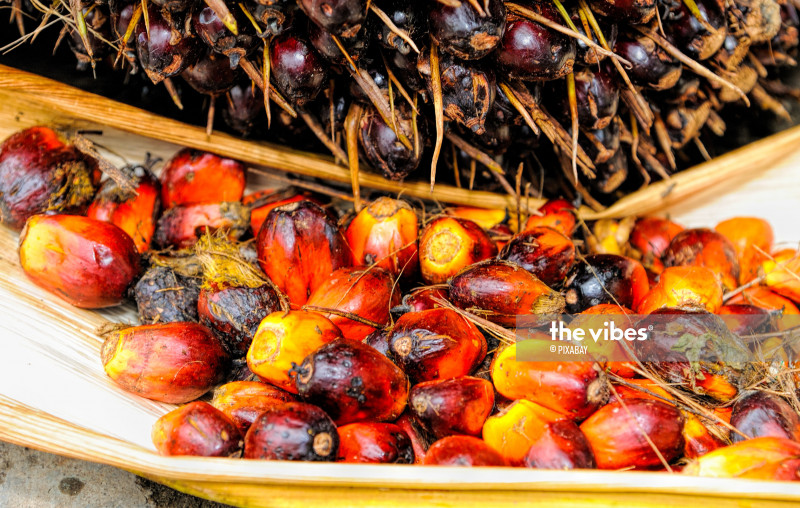KUALA LUMPUR – Malaysia’s exports of palm oil and palm-based products to China are expected to increase this year as it enhances cooperation with the latter in the palm oil trade with the recent signing of the memorandum of understanding (MoU) in Beijing.
The MoU inked between the Malaysian Palm Oil Board (MPOB) and the China Chamber of Commerce of Import and Export of Foodstuffs, Native Produce, and Animal By-products further broadened cooperation between the two countries in the trade of palm oil apart from strengthening Malaysia’s position and market share in the Chinese market.
“We foresee higher exports of palm oil and palm-based products to China this year as we enhance cooperation in palm oil trade with the country with the signing of the MoU,” said MPOB director-general Datuk Ahmad Parveez Ghulam Kadir said in a statement.
He said the MPOB successfully expanded the use of palm oil in value-added food industries through its research and development (R&D) initiatives, helping to secure the market for Malaysian palm oil.
These include the use of palm-based speciality fats for contemporary mooncakes, palm oil application in Xinjiang Naan, red palm-based extruded snacks, palm-based milk tablets, palm-based Tibetan butter tea, red palm oil-based hot pot paste, palm powder fats as feed additives for dairy cattle and red palm oil as feed for hairy crabs, said the MPOB director-general.
“The cooperation also allows China to participate in the technological exploration in oil palm mechanisation in Malaysia, which will help to increase productivity and reduce reliance on human labour in the plantations.
“Both countries can now jointly promote the exploration, designing, and implementation of new technologies such as artificial intelligence (AI), fifth generation mobile network (5G), Internet of Things and autonomous vehicles in oil palm plantations in Malaysia.
“These include aerospace, drone and AI technologies from China Great Wall Industry Corporation, particularly on the mapping of age profiles and detections of disease in the oil palm plantations as well as autonomous harvesting vehicles developed by Shanghai Westwell Information Technology Co Ltd,” said Parveez.
As such, it enhances China’s confidence in Malaysian palm oil and secures the supply of the commodity for the country.
Malaysia and China can now work together to jointly promote the supply chain stability of palm oil in both countries as well as the Malaysian sustainable palm oil (MSPO) certification for food, non-food, biofuel, and feed applications in China.
In addition, CFNA would include MSPO in the drafting of guidelines under the Subcommittee for Sustainable Agriculture of CFNA and the promotion of MSPO at their events.
CFNA would also lead a business delegation from China to participate in the MPOB International Palm Oil Congress and Exhibition, to be held from November 7-9 in Kuala Lumpur Convention Centre.
Additionally, Malaysian palm oil will be highlighted at the 14th China International Cereals and Oils Summit organised by CFNA in July.
MPOB is also collaborating with Tsinghua University for the promotion of Malaysian palm biofuel in China, which involved a pilot study using Malaysian palm biodiesel in Chinese heavy vehicles.
The Palm Oil Research and Technical Services Institute of MPOB China also inked a consultancy agreement with China’s Grand Industrial Holdings Co Ltd (GIH) last year.
“This sees the latter acquiring technical services from Portsim China on the formulations of palm products from 2021 to 2023, which increases the uptakes of palm oil by GIH.
“Following this engagement, GIH, through their subsidiary Grand Oils and Foods Sdn Bhd, brought in RM 320 million worth of greenfield investment in Malaysia’s palm oil sector. China was Malaysia’s second-largest palm oil export market in 2022, accounting for 11.2% of total Malaysian palm oil exports,” said Parveez.
In 2022, Malaysia’s total export value of palm oil and other palm-based products to China rose 12.9% to RM14.86 billion from RM13.16 billion in 2021.
The total export volume of palm oil and palm-based products increased by 0.30% to 3.14 million tonnes in 2022 from 3.13 million tonnes in 2021. – Bernama, April 25, 2023














.jpg)

.jpg)




